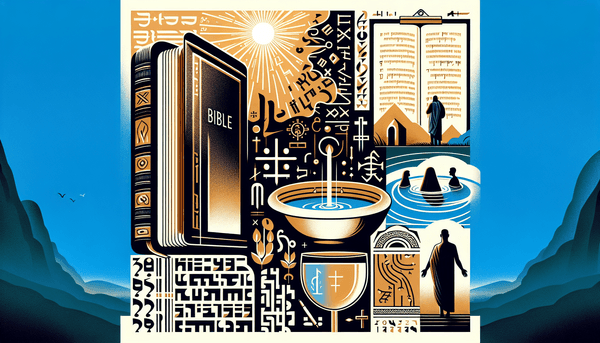Treatment of God's Creation
Scripture imparts a profound respect for nature and all living beings. Proverbs 12:10 encapsulates this ethos, stating, \"The righteous care for the needs of their animals, but the kindest acts of the wicked are cruel.\" This wisdom extends beyond domesticated animals, urging us to consider the dignity of all life, including bees. As stewards of creation, we are reminded in Genesis 1:28 of our dominion over the earth, which carries a responsibility to \"rule over\" without exploitation. The call to nurture the environment is further emphasized in Genesis 2:15, as we are to \"work and take care of\" the Garden of Eden, symbolizing our world. Acknowledging the intrinsic value that every creature holds, as highlighted in Matthew 6:26, challenges us to reflect on the impact of our actions, striving to harmonize with the delicate balance of life.
The Book of Enoch
Although the Book of Enoch is not found within the canonical scriptures recognized by most Christian denominations, its influence on religious thought cannot be understated. This ancient Jewish text expands upon the life and teachings of Enoch, offering insights into divine judgment, angelology, and cosmology. Its exclusion from the Bible is a result of complex historical processes of canon formation, where texts were evaluated for their apostolic authority and consistency with accepted doctrine. The Book of Enoch is often cited in discussions about the nature of inspired scripture and the role of tradition in shaping the biblical canon. As 2 Timothy 3:16 asserts, \"All Scripture is God-breathed and is useful for teaching, rebuking, correcting and training in righteousness,\" prompting ongoing dialogue about the boundaries and content of sacred writings.
Conclusion
Our exploration of various biblical topics reveals the depth and breadth of wisdom contained within the Holy Scriptures. From the stewardship of creation to the recognition of Mary as the Mother of Jesus, and from understanding the nature of God in Christian theology to examining the life of the enigmatic Enoch, the Bible provides a rich tapestry of guidance for believers. As we delve into these themes, we are invited to deepen our spiritual understanding and strengthen our moral resolve. This journey through biblical perspectives encourages us to further seek truth and live out our faith with conviction and compassion.
FAQ
Q: Is Mary the mother of God?
A: Yes, according to the Bible, Mary is recognized as the mother of Jesus, who is both fully human and fully divine. Luke 1:31-32 affirms this belief.
Q: Is killing bees a sin?
A: The Bible does not specifically address the issue of killing bees, but it does provide guidance on how we should treat God's creation. Proverbs 12:10 encourages us to treat all living creatures with respect and kindness.
Q: Was Allah the same person as the Christian God?
A: In Christianity, the term \"God\" refers specifically to the God revealed in the Bible, who is understood as the creator of the universe and the one true God. \"Allah\" is the Arabic word for God and is used by Arabic-speaking Christians and Jews, as well as by Muslims. However, there are significant differences in the understanding of the nature and character of God between the two faiths.
Q: What happened to the book of Enoch?
A: The book of Enoch is not included in the canonical Bible that is widely recognized by most Christian traditions. It is considered part of the apocryphal or pseudepigraphal writings, texts that were not included in the official canon of scripture but are still of interest for historical and cultural reasons.






